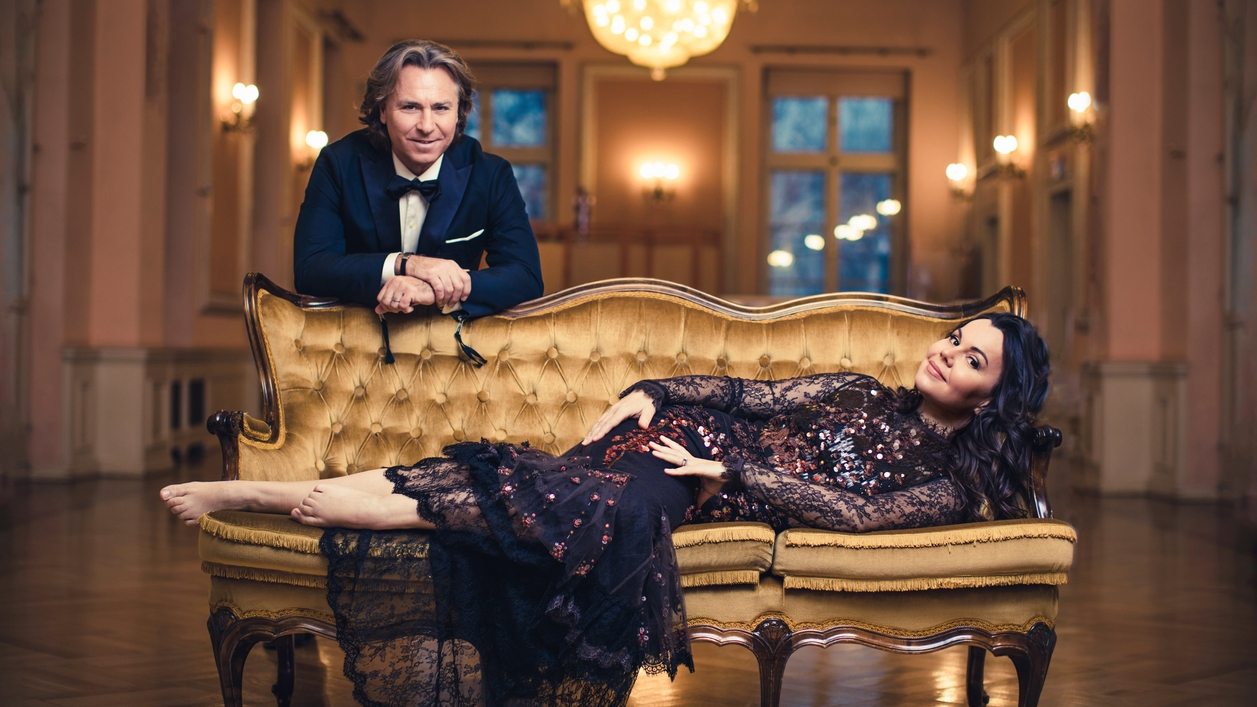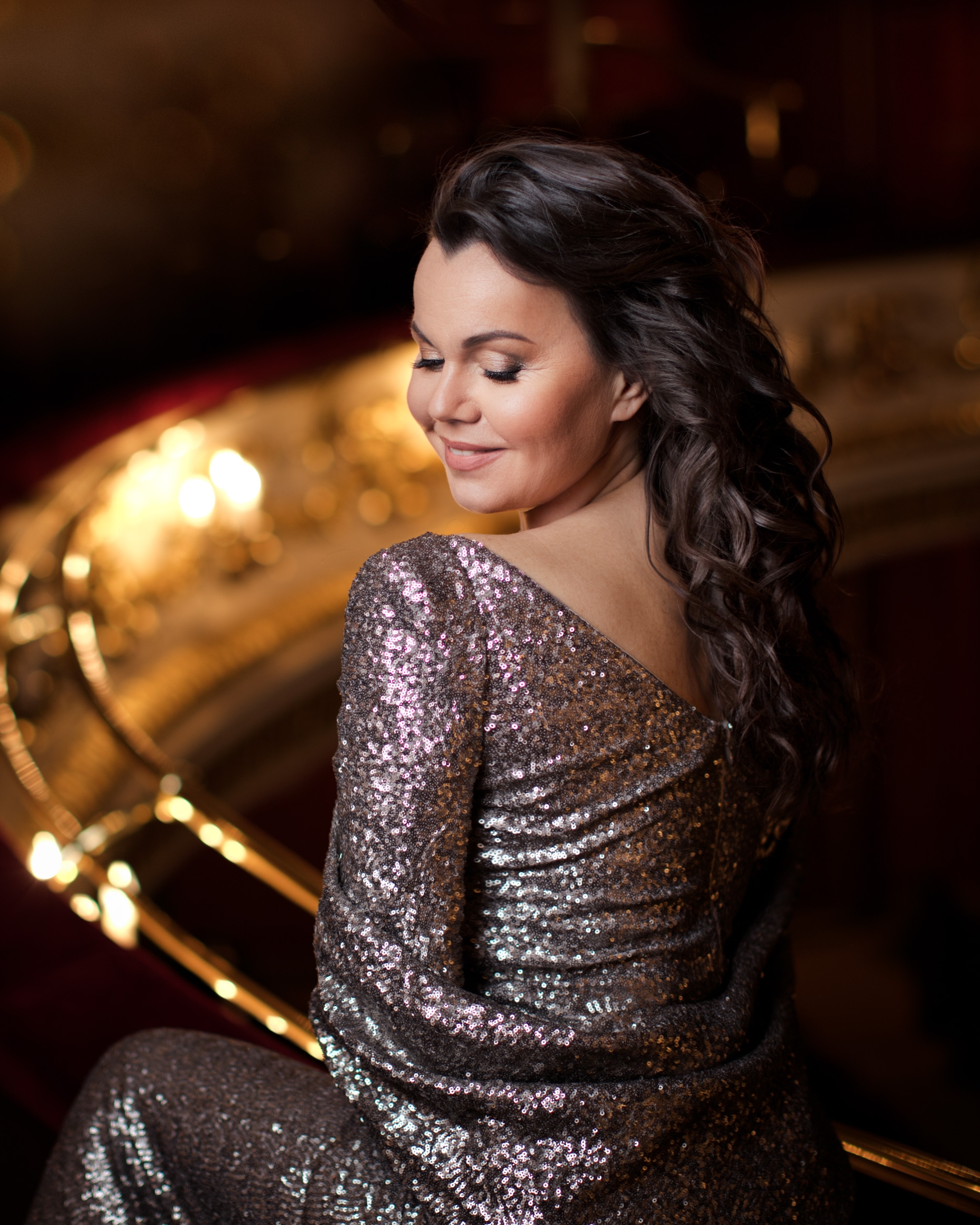Violin & Honey
Interview |
In this interview, the couple talk about what they think of Giacomo Puccini's Tosca, what life together is like inside and outside the opera bubble and why opera must be heard even in dark times.
You have known each other for a long time, are married and often perform together. How would you describe each other's voices?
Kurzak Ah, that's easy! When I hear Roberto's voice, I see a golden, warm honey.
Alagna Really? That's beautiful! Aleksandra's soprano seems instrumental to me, like a violin. When I listened to her new CD - Falcon - last summer, I immediately thought of the sound of a violin. There's this special quality, this incredible legato, this beautiful tone, this perfect lead. Like a noble musical instrument!
When you perform together - is it absolute togetherness? Do you have the same singing routines?
Kurzak Oh no! We are very different! I need the peace and quiet, but Roberto sings all the time. Sometimes, when we perform together, we need two hotel rooms. And then the question comes up: But, aren't you married? Why does everyone need their own room? Answer: Because I work in mine! I need my own room to get the peace and quiet I need.
Alagna I, on the other hand, like having people around me. I can still concentrate because I withdraw into my own inner world. Even if there are lots of people around me. I love their company!
Like Puccini! He also liked to compose when there were people around him.
Kurzak Roberto is Sicilian, with 50 cousins. He feels at home in their midst!
Alagna I've always been able to do that! Working, even when it's noisy all around and I'm surrounded by people. I like that. I like having people around me that I love and that I'm friends with.
One of your colleagues recently said that all tenors don't just want to sing Cavaradossi, they actually want to be him: Because the character of this artist, lover and revolutionary has something exemplary about it for many. Do you see it that way too?
Alagna Of course, Cavaradossi is a noble character that you like to portray on stage. But I always try to approach all the characters I sing with empathy. So not just the lovable ones with integrity, but also the reprehensible ones, like Pinkerton in Madama Butterfly. It's not about judging them, but about trying to understand the characters in their respective situations. And to understand why they are like this and not different. And I don't want to create the characters artificially, but try to be Roberto in the situation of the respective character. So in the case of Cavaradossi: I want to really feel his feelings, I want to feel his life situation. That's essential for me.
Kurzak What Roberto said about "really feeling feelings": I see it exactly the same way. It probably clicked between the two of us because we have such similar approaches to theater. We don't act. We are. Then you can be honest, really feel the emotions and pass them on to the audience. A very central point for me as a singer! And about the character of Tosca: the fact that she is a very strong, brave woman is a cliché for me. I don't see that at all. I would rather say that she is very naive. We know that she was brought up in a convent and we know what Cavaradossi says about Tosca in Sardou's original play: she can only pray and sing. - That is Tosca! She lives in a belief in the good in people and cannot even imagine that evil exists. That's why she is so shocked by Scarpia in Act 2. Incidentally, she kills him in a state of panic; it is not a planned murder, but she sees no way out and is overwhelmed by the situation. Because what is she? An honest, nice person, with great feelings, with a great love for Cavaradossi. And for art. But this revolutionary appeal that Cavaradossi has - that's what she lacks..
Alagna Artists - and Tosca is a great artist - sometimes can't understand real life.
Kurzak She lives in a bubble. An art bubble.
Alagna I'm a bit like that too. Sometimes I don't quite understand real life.
Kurzak Oh yes, Roberto absolutely lives in the art bubble. (laughs)
"We are not playing. We are.
Then you can be honest,
really feel the emotions and pass them on to the audience."
Let's stay in this bubble for a moment. You've been part of the international opera world for many years, appearing in many roles on stage. Does it sometimes seem to you that real life takes place on stage and that life outside the opera house is fake?
Kurzak No, absolutely not! I always see the normal things in life and take care of them.
Alagna It was at least a little like that for me. Bad things happened early on in my life, I lost my first wife early on and was left alone as a young widower with a small daughter. Real existence seemed terrifying to me, I was afraid of being happy. So I moved my life to the stage. And only existed there, for many years without a vacation..
Kurzak What's more, Roberto grew up in difficult circumstances. His family was very poor and for his parents, singing was an escape to another, a better world. Almost a place of wonder.
Alagna Exactly, singing was always something very special for us. Music helped my parents and relatives in Sicily through all the difficulties. And that passed on to me. Whenever I had problems, I withdrew into my own world of singing. That is still the case in my family today. My father is now 85 years old, he is blind, but when he sings, he forgets all the hardships of life.
Kurzak I was born into a family of professional musicians, my father was a horn player and my mother sang in the opera. So opera was nothing special or unusual for me, it was part of normal life. The fact that my mother went to the opera in the evening to sing made singing seem like a very ordinary profession to me. Today I can't imagine doing anything else professionally, but I know that there is a life outside the stage. I like the balance between art and a normal life, between being a singer and being a mother and wife. This mixture is good for me.
"Maybe our mission is to make people happy and to support them with our art in their difficult times.
Sometimes we think that our singing is not enough, that this is not the real mission.
But it is."
Do you think that viewers also sometimes seek refuge in art in order to be distracted from the problems of everyday life?
Kurzak When I sang Tosca for the first time in my life, it was two or three days after the start of the war in Ukraine. I was very worried and desperate. And the situation seemed so strange to me: there are real problems and disasters - and I'm on stage at the Metropolitan Opera in New York, singing. Entertaining people. That's crazy! And I wasn't in any shape to go on stage. So I did a short story live on Instagram right outside the opera house and talked about exactly these thoughts. I usually never do that on social media, but at that moment I felt that I had to do something, that I couldn't just go on stage. So I said: today Tosca's prayer, the aria "Vissi d'arte", will really be a prayer: one for peace in the world. And it was extraordinary. After I sang the aria, there was an incredible silence in the opera house. Maybe some people had seen the story... And then I got messages from the audience: don't think that art is useless right now! Because we have come to the opera to heal our wounds. And you singers are doctors of the soul. That's when I understood what music and singing can be: much more than just beautiful sounds. Sometimes people need such healing moments.
So should art also convey a "message"? A lesson?
Kurzak Sometimes it is perhaps about simply experiencing stories. Stories that the music, the libretto, the work tell us. We can't learn anything about the battle between good and evil in Tosca, because nobody wins. Maybe it's just the joy of art itself.
Alagna Perhaps there is a message for us artists. Maybe our job is to make people happy and to support them with our art in their difficult times. Sometimes we think that our singing is not enough, that this is not the real mission. But it is. Maybe it's not about letting your political advice be heard, but about giving happiness and making people happy.


